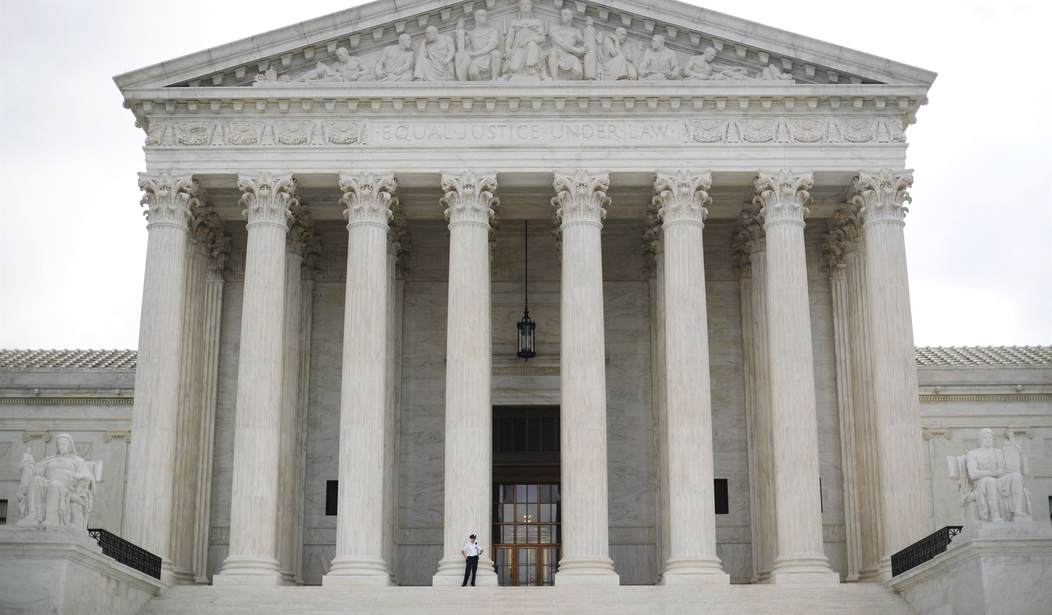Editor's Note: This piece was written by Young Voice contributor Matt Liles.
The Supreme Court extended a hand to free speech this week in Iancu v. Brunetti, a saucy trademark protection dispute. The U.S. Patent and Trademark Office (PTO) had denied trademark registration to Erik Brunetti’s clothing brand “FUCT”- arguing that it falls under a provision of the Lanham Act, which prohibits brand names with “immoral” or “scandalous matter.” The Court had to rule whether the “immoral” or “scandalous matter” clause violated the First Amendment by allowing PTO officials to be the gatekeepers for which ideas are objectionable. By striking down the provision, the majority dealt a blow to the government's power over American speech. It’s great news.
Only two years ago, the Supreme Court ruled similarly on an almost identical case dealing with a slightly different clause. Each justice decided that a different provision prohibiting “disparag[ing]” trademarks was unconstitutional for the very same reasons. Namely, that majorities’ viewpoints are not the same in all times and places, and inviting bureaucrats to reject trademarks on the grounds of their own beliefs curtails First Amendment freedoms.
The truth is that moral standards are more dynamic than the law, so they can’t be rightfully reigned in by it. The Lanham Act asks PTO employees to reject a trademark if its content would be considered shocking or offensive to a sizeable portion, if not a majority, of the American public. But that’s a difficult thing to gauge, since what the majority of our country thinks about a topic hardly ever stays the same for very long. According to Pew Research data, 60 percent of Americans opposed same-sex marriage in 2004, compared to the 61 percent of the country that now supports it. It’s not hard to imagine the PTO of 20 years ago might have rejected marks that made references to homosexuality under the standard the “immoral” or “scandalous” provision created. By striking down this clause, the Supreme Court is preventing the federal government from enforcing the law on the moral whim of a generation.
Similarly, moral standards will vary for different groups of people. Generally speaking, evangelical Christians are probably more likely to agree with the government’s view that “FUCT” is too vulgar to be trademarked. But a sizeable chunk of the nonreligious American population would disagree. In a short concurring opinion, Justice Alito wrote that the court’s decision wasn’t “based on moral relativism,” but rather the extent of the rule of law. A government with the power to decide what constitutes free speech is prone to abuse it.
Recommended
Maintaining a moral standard for granting trademarks invites the government to engage in blanket viewpoint discrimination. Prior to Monday’s ruling, the PTO was taking on an impossible discretionary role in which the standards of over 300 million people are to be decided by a handful of employees — who themselves disagree about what might be offensive. While they follow standards for reviewing applications, folks who become employed by the federal government don’t suddenly morph into beacons of neutrality and justice. Like anyone else, they’re likely to be biased toward their own views. But one of the key tenets of our democratic republic lies in the United States’ multitude of contesting religious, moral and cultural philosophies. The government can’t be truly neutral while filtering speech. There’s simply too much diversity of thought, and that’s a wonderful thing.
Trademark cases aren’t the most high-profile free speech battles fought today, because being denied a trademark isn’t the dramatic end of someone’s First Amendment rights. As Justice Kagan noted in the majority opinion, unregistered trademarks, while limited, are still usable and enforceable. But this ruling re-emphasizes that the Supreme Court is still committed to holding the rest of the government accountable when it oversteps on free speech, however small that encroachment is. In a political climate that’s increasingly hostile to free speech, we should be cheering when the highest court in the land takes a stand in defending it.
Matt Liles is a writer and Young Voices contributor from Austin, Texas.

























Join the conversation as a VIP Member